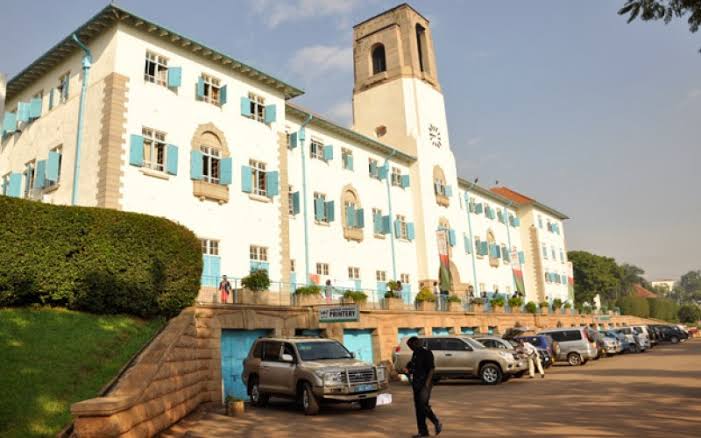Is it another round or is it more of the same? That rhetorical question surmises the inkling that nothing moves Makerere University to action without personal interest or even selfish motive coming into play. The actions of the past two weeks of strikes, accusations and counter-accusations at Makerere are a clear manifestation of what defines selfish interest as opposed to the greater good.
Why is it that this time around, the students’ strike has not got the full backing of the academic staff, yet during the lecturers’ strike, students were co-opted in the struggle for salary enhancement as covering fire when it looked like the odds were whirling away from the lecturers’ demands? The students demanded that lecturers teach them and the lecturers leverage on this push and threated the government of the worst to come if their demands were not met instantaneously.
Since they achieved what they wanted, the scratch my back and I scratch yours would have been an appropriate epigram this time of student riots. However, what happened was a cold shoulder and a lukewarm expression of support by a few lecturers, who mostly delved more on the process rather than the cause of the strike. That is what defines interest.
This tepid attitude is partly explained by the dilemma created by the current student guild, repudiating a decision reached by the former guild council. Anyone who respects organizational structure will find it hard to support a recalcitrant students guild bent on overturning a decision by a legal structure of a select committee specifically created to advise on the tuition by the former guild. It remains a puzzle to even those who would have supported the strike to find a convincing explanation for the strike after two years of decision making, which effect is for the new entrants and not the current rioters.
In an attempt to explain their cause of the strike, it’s condescending to fathom the notion, that the strike was intended to help those still in secondary. Makerere, being a hub of intellectual discourse, three questions come to light. Firstly, what statistical research findings informed the results that the students still in secondary will come to Makerere and find the fees exorbitant but still apply for admission? Secondly, why is it assumed that such students are too inept to appreciate the changing cost of living that may affect the quality of education at Makerere when lecturers are compelled to moonlight if their payment fails to cover the cost of living. Thirdly, how did they come to conclude that the parents of the new students will not be able to pay the tuition, was there structured research, opinion poll or a referendum carried out to come to the conclusion that informed the strike decision?
When one grapples to analyze those questions, it is evident that the reasons advanced for the strike are premised on quicksand, but rather augments the notion that there are other reasons rather than the ones given for the strike. What has been very surprising in this strike, is the lack of support of the general students’ body, the strike involved a handful of rowdy students, who forcefully conscripted others to join the riots against their interest. This clearly shows how the strike was thin on the ground.
The burning of the property of the former guild president, Papa Were is another desperate attempt to look for answers where they don’t exist. Papa Were happened to be the guild president, but the decision was a collective consensus of the guild after benchmarking in the region. That is why security and other pundits opined that the strike could have had a hand outside of the university to cause mayhem for political expedience.
Listening to the opposition voices, one would be excused for the negative airplay to condemn the actions of security as they exalt the negative acts of looting Wandegeya and Kikoni and the general environ of Makerere, disrupting traffic, vandalizing university property in a show of freedom to demonstrate. It is illusionary to think that the freedom to demonstrate is equivalent to the freedom to destroy property by rioting.
There is a clear distinction between a peaceful demonstration and rioting, that is why rioters are handled by riot police and not police band. The notion that stone-throwing is part of a demonstration and so should not be replied to by teargas or rubber bullets, is defeatist. A stone can be as lethal as any ammunition given where you are hit. It is on record that a senior police officer at the rank of AIP, John Michael Ariong was hit by a stone and died. So, a gang of stone-throwers is as dangerous as any person carrying a lethal weapon. You can, therefore not dismiss the damage it can cause.
But from a logical point of view, would anybody expect the security to fight back by using stones because the students are pelting them with the same? Surely, stones are not part of the modus operandi of security forces. It has to be rungu, teargas or bullets in extreme cases. Due to the belligerent acts of a small clique of rioters, the general student’s body has acquiesced to their excesses to avoid reprisals and witch-hunt.
Makerere is expected to hold intrepid debates to address whatever challenges that bedevil the institution, but the culture of strikes makes it look like a scion of Kiseka market discourse. The clash of ideas is relegated to the expression of inflated egos. No one needs to lose a debate or a fight, because such a scenario casts them in a weaker position of authority.




